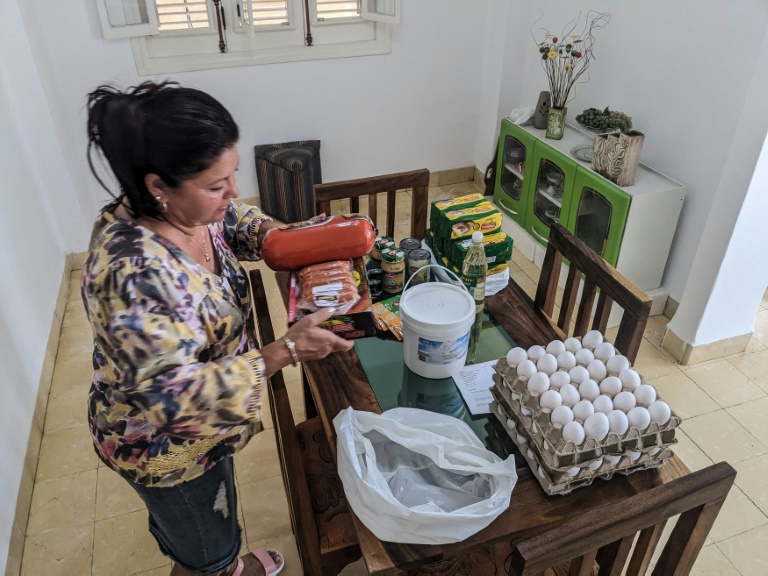Maria Paez was relieved to receive packages of eggs, ham, yogurt and other groceries she had bought online from her children in Miami and shipped to Havana.
Recently, due to the severe economic crisis and food shortages, Cubans living abroad tend to prefer sending aid to their families back home rather than sending cash remittances.
“It's a relief for us to receive these products,” and “in terms of expenses, it saves us a lot of money,” Paez, 59, a mathematics major, told AFP.
“It's very important to receive eggs because they are a guaranteed breakfast,” added Paez, who lives with her husband since their two children immigrated to the United States.
In total, she received 18 shipments of supplies that will provide a lifeline for Cuba as it faces its worst economic crisis in 30 years, with shortages of food, medicine and fuel.
After years of double-digit inflation, a box of 30 eggs now costs 3,300 pesos ($27.50) on the communist island, where the average wage is 4,800 pesos.
Cuba's tough economic situation has led about 5 percent of the population to flee the country in recent years.
The increase in demand has seen a boom in online stores offering delivery of essential items to Cuba.
Most are based in the United States, where 2 million Cubans live, but they have also appeared in Mexico, Canada and Spain.
Dozens of delivery vans and private cars can be seen on Cuba's streets every day distributing packages of food items that are in short supply and whose prices have skyrocketed since the government allowed private stores in 2021.
They don't want money.
Luis Manuel Mendez, 59, who works for a delivery service in the US city of Hialeah, near Miami, which has a large Cuban population, told AFP he was sending food, medicine and school supplies to his two children he left behind when he emigrated a year and a half ago.
“Prices in Cuba are so high,” so “it's much more practical to buy here and send it over,” Mendes said.
His children “don't want money, they want me to send them basic necessities.”
Nearby, a steady stream of people carries bags to another agency coordinating the shipment of food packages to Cuba.
Maribel Ruiz, 62, said she was helping out her aunt and cousins back home.
“The problem is, even if we send money, there is nothing to buy in the local stores. We have to send packages of everything – medicine, food, clothes.”
Cuba has been battling high inflation and shortages since the pandemic hit tourism hard, as well as tougher U.S. sanctions in 2021 and structural weaknesses in its economy.
Remittances from the U.S. to Cuba reached a record $3.7 billion in 2019, making it the country's second-largest source of income after exports of health services and surpassing tourism, according to the Miami-based Havana Consulting Group.
Cuban economist Emilio Morales, chairman of a consulting firm, said the figure fell “from $2 billion in 2022 to $1.9 billion in 2023.”
Morales said migrants were increasingly preferring to “spend large amounts of money to get their families out of the country” or to pay online companies to send packages to their homes.
rd-gm/fb/md



